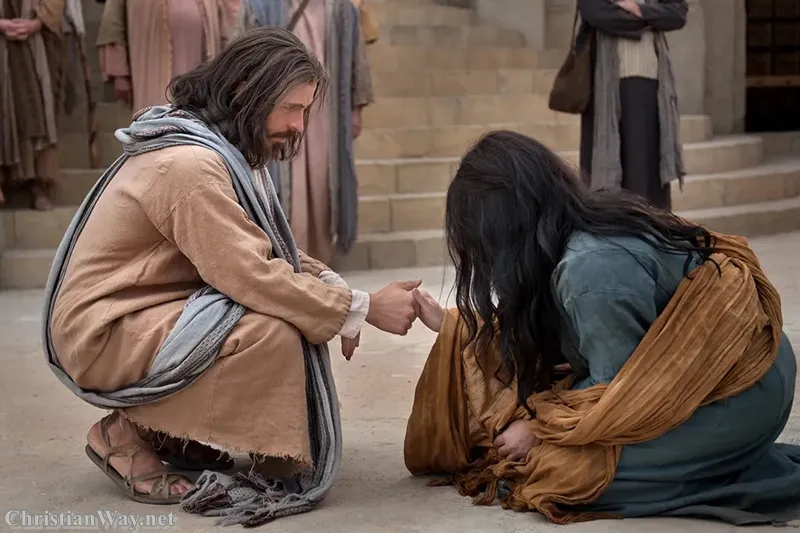Dear friends in Christ,
Every human soul, at some point, stands before the mystery of faith — that invisible thread binding heaven and earth, reason and mystery, the seen and unseen. To believe in God is not merely to agree with ideas; it is to surrender the heart to the One who calls us beyond what we can touch or prove. Faith is the breath of the Christian life, the light by which we walk through the shadows of uncertainty.
From the first moments of creation to the cross of Calvary, the story of faith is written across the history of salvation. Abraham left his homeland without knowing where he was going, trusting only in God’s promise. Mary believed the word of an angel and bore within her womb the very Son of God. And we, their children in faith, are invited to walk in that same trust — believing even when we do not see, and loving even when we do not understand.
Faith in Christianity is not blind. It is the vision of the heart opened by grace, revealing to us the truth of who God is and who we are in Him. It is the journey of the soul toward divine intimacy — a journey that begins not in certainty, but in surrender.
The Nature of Christian Faith
Faith, in its simplest form, is trust — a total reliance upon God’s word and His character. Scripture tells us, “Now faith is the assurance of things hoped for, the conviction of things not seen” (Hebrews 11:1). It is the foundation upon which every act of love, every prayer, and every sacrifice is built.
In Christianity, faith is both a gift and a response. It is given by the Holy Spirit, who stirs within us the desire to believe; and it is our free response to that grace, expressed through the way we live. Saint Paul writes, “For by grace you have been saved through faith, and this is not your own doing; it is the gift of God” (Ephesians 2:8).

Faith does not demand that we abandon reason, but that we go beyond it. It asks us to see through the eyes of love — to trust that God is faithful even when His ways surpass our understanding. As Saint Augustine once said, “Faith is to believe what you do not see; the reward of this faith is to see what you believe.”
Faith as Relationship, Not Concept
Christian faith is not primarily an idea about God, but a relationship with God. It is a living bond of trust between the Creator and the creature. When Jesus called His disciples, He did not ask them to memorize doctrines first; He invited them to follow Him — to walk with Him, to trust Him.
Faith is not static. It grows as love grows. It deepens as we encounter both joy and trial. In moments of suffering, faith becomes a lifeline — not because it removes pain, but because it gives meaning to it. In moments of peace, faith becomes thanksgiving — a recognition that all good things come from God.
In the Gospel of Mark, a father cries out to Jesus, “I believe; help my unbelief!” (Mark 9:24). That simple prayer captures the essence of Christian faith — a humble heart reaching toward God, even in weakness. True faith does not mean we never doubt; it means we bring our doubts into the light of God’s mercy.
Faith in the Life of the Church
From the earliest days of the Church, faith has been the unifying confession of all who belong to Christ. The Apostles’ Creed, spoken in every generation, begins with the words, “I believe in God…” These words are not merely recited; they are professed with the whole being.
The Church is the home of faith — not because it controls belief, but because it preserves the living memory of what has been revealed. In her sacraments, faith is nourished; in her teachings, faith is illuminated; in her community, faith is lived.
When we are baptized, we enter into the mystery of faith — dying with Christ and rising to new life in Him. When we receive the Eucharist, our faith is strengthened by His very presence. The Church does not replace faith; she leads us deeper into it.
The Struggle and Growth of Faith
Faith is not a possession that we keep; it is a relationship that must be nurtured. Like a seed, it must be tended with prayer, watered with Scripture, and strengthened by love. Yet every believer knows that faith also passes through nights of darkness.
There are moments when God seems silent, when our prayers echo back without answer. These are not failures of faith but its purification. Saint John of the Cross described this as “the dark night of the soul” — a time when faith learns to love God not for His gifts, but for Himself alone.
Even the saints struggled with doubt. Mother Teresa wrote of feeling God’s absence for years, yet she continued to serve with radiant love. Her faith was not the absence of struggle but the triumph of trust. To walk by faith means to keep walking — one step, one prayer, one act of love at a time — even when the path is unclear.
Faith and Reason: Harmony, Not Opposition
Many in the modern world see faith and reason as enemies. Yet in Christianity, they are companions. Reason seeks truth; faith receives it. Together, they form the fullness of wisdom.
The Catholic Church teaches that “faith and reason are like two wings on which the human spirit rises to the contemplation of truth.” Faith perfects reason, lifting it beyond what it can discover on its own. Reason supports faith, protecting it from superstition or error.
When Thomas the Apostle doubted the Resurrection, Christ did not condemn him; He invited him to touch His wounds. God does not fear our questions. Faith begins where our understanding ends, but it never despises understanding.
Living Faith in Daily Life
Faith is not confined to church walls or Sunday prayers. It touches every moment — how we work, forgive, love, and hope. The truest test of faith is not in what we say we believe, but how we live when no one is watching.
To live by faith means trusting that every event — even the painful ones — can become a place of encounter with God. It means forgiving when it seems impossible, loving when it costs us, and believing that God’s will is always good.
Faith calls us to see the divine in the ordinary: Christ in the stranger, grace in our failures, resurrection in every new morning. It teaches us that nothing is wasted in God’s plan — not even our tears.
Faith and Works: Two Sides of One Coin
Saint James reminds us, “Faith by itself, if it has no works, is dead” (James 2:17). True Christian faith expresses itself in love — in service to others, in compassion for the poor, in mercy toward the sinner.
Good works are not a means to earn salvation but the fruit of a heart transformed by grace. When we believe in Christ, His Spirit moves within us, urging us to act with justice, to comfort the broken, and to bring light into darkness.
Faith without love is an idea; faith with love becomes a living witness. The world does not need more words about faith — it needs hearts that embody it.
The Ecumenical Heart of Faith
Across all Christian traditions — Catholic, Orthodox, Protestant, Anglican — faith remains the foundation. Though we may differ in theology or practice, we share the same confession: Jesus Christ is Lord.
This shared faith unites the Body of Christ across centuries and cultures. It reminds us that belief is not the property of one denomination but the common inheritance of all who follow Jesus. When we focus on faith in Him, walls begin to crumble and hearts draw near.
Faith, at its purest, is not divisive. It is the thread that weaves together the family of God, calling us to charity, humility, and unity.
The Reward of Faith
Faith looks beyond this world. It teaches us to hope for what eyes cannot see — eternal life in communion with God. Jesus said to Thomas, “Blessed are those who have not seen and yet believe” (John 20:29).
Every act of faith, however small, is a step toward heaven. When we trust in God’s promises, even amid uncertainty, we begin to taste eternity. The saints now in glory once walked the same path we do — holding onto faith through storms and silence.
In the end, faith will give way to vision. As Saint Paul wrote, “Now we see in a mirror dimly, but then face to face” (1 Corinthians 13:12). Until that day, faith is our light in the darkness — a flame kept alive by hope and love.
Reflect and Pray
Faith is not something we master; it is Someone we follow. It grows as we draw closer to Christ, as we open our hearts to the Spirit who whispers, “Do not be afraid.”
If your faith feels small today, remember the mustard seed — tiny yet capable of becoming a great tree. God asks not for perfect faith, but for willing faith. Bring Him your doubts, your questions, your hopes, and let His grace do the rest.
Let us pray:
Lord Jesus, strengthen our faith when it wavers and deepen our trust when we cannot see the way ahead. Teach us to walk with You in every moment, to love You in every trial, and to believe that Your promises never fail. May our faith become light for others, leading them to Your mercy and truth.
Amen.
— Fr. John Matthew, for Christian Way





